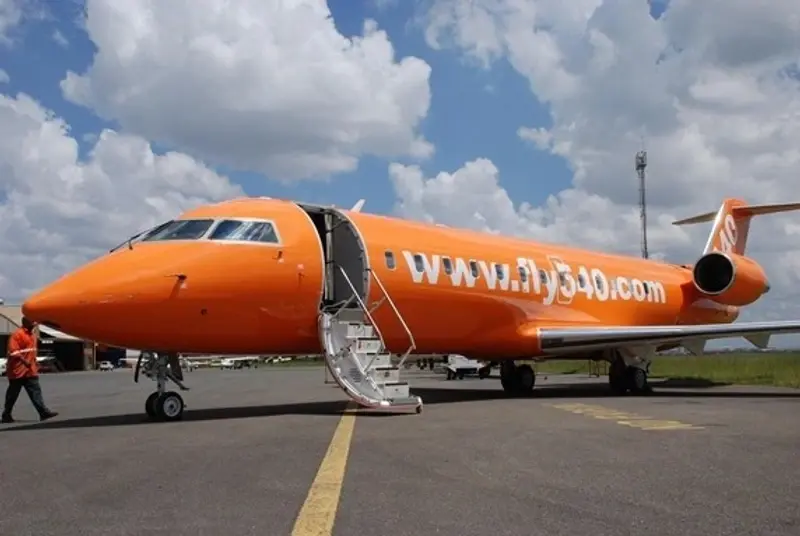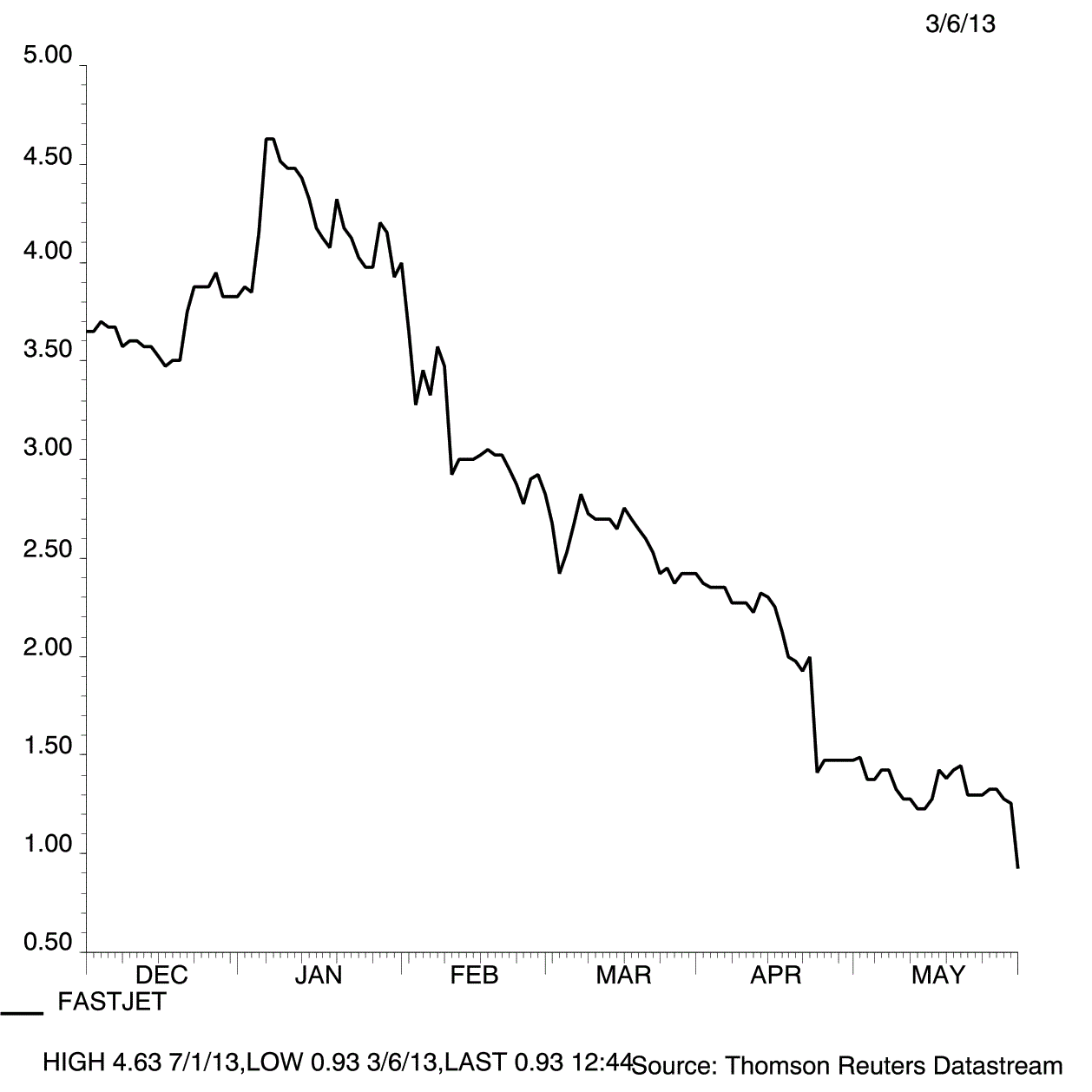
Shares in Fastjet (FJET:AIM) have tumbled as investors react to appalling financial results, released last Friday after the market close, which raise serious concerns about the airline's ability to continue trading.
The group's stock shed 25.5% to 0.94p after independent auditors KPMG said 'significant doubt' had been cast on Fastjet's future prospects and its ability to continue as a going concern.
Fastjet, which is backed by easyJet founder Sir Stelios Haji-Ioannou who owns a 3.95% stake, made a loss after tax of $56 million (£37 million) on revenues of $21.1 million in the period, and saw an operating cash outflow of $19.9 million in the 18 months to 31 December 2012.
The accounts, which were published almost two hours after the market closed in London on Friday, saw independent auditors KPMG weighing the group's future prospects which they said were 'dependent upon improved trading, in particular through gaining access to international routes, and raising additional funding'. This, according to the accountants, 'indicated the existence of a material uncertainty which casts significant doubt on the group's and the parent company's ability to continue as a going concern.'
Since its spin-off from Lonrho (LONR) last year, Fastjet has made no secret of its ambition to create Africa's first pan-continental airline. The business was initially created with the acquisition of Fly540, a Lonrho Aviation business operating in East Africa with flights in Fastjet's own name commencing in November 2012.
The Fly540 operations seriously underperformed with an attributable EBITDA (earnings before interest, tax, depreciation and amortisation) loss of US$17.8 million. Late April saw Fastjet sign a memorandum of understanding (MoU) with Don Smith, CEO of Five Forty Aviation in order to resolve disputes between the two parties.
Also in April 2013, the group signed a MoU with Blockbuster, a South African investment company, to set up to operate a service between Johannesburg and Cape Town. Blockbuster, a local company co-owned by President Jacob Zuma's son, Edward Zuma and local businessman, Yusuf Kajee offered to fulfil the 75% local shareholding requirement to operate an airline in South Africa.




